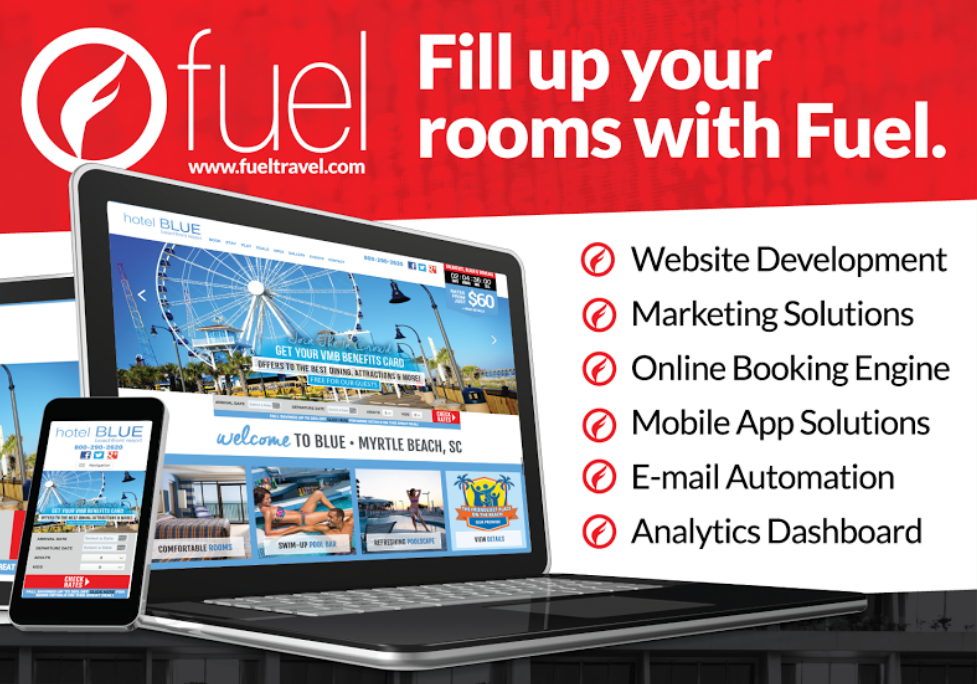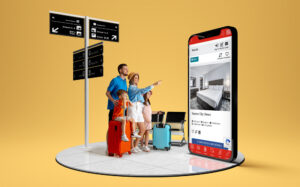Let’s be honest with ourselves: We hit the mobile tipping point back in 2014. And yet, we still see mobile bookings and mobile revenue lagging far behind. Why is that?
The conventional wisdom is that mobile is “earlier in the conversion funnel.” It’s where people are getting inspired or simply researching before switching to the desktop to book. Others will tell you that consumers are still wary of entering credit card data into their phones.
I’m sorry, but I have to call shenanigans on that argument. Look at all the things we do with our phones — purchasing songs and apps on iTunes, using Uber, buying stuff we don’t need on Amazon, paying our bills through our bank’s mobile app. An increasing number are also opting to use mobile payment systems like Apple Pay, or even using store specific apps such as Chick-fil-A, Dunkin’ Donuts or Starbucks.
The perceived security concerns simply don’t exist like they once did. The reason that mobile booking has not caught up to desktop is simple. Hotels suck at making it easy for people to book on mobile.
When was the last time you picked up your phone and tried to make a booking on your own hotel website? Go do it and see how easy it is to use. I bet it’s it’s more clunky than you think.
I’ve lost count of the number of times that I’ve seen a beautifully responsive website only to click over to the booking engine to find that, not only is it not mobile, but it looks like it was designed by an untrained monkey. The layout is poor and hanging off the screen, forcing me to slide back and forth to see all of the pertinent information. More important, the call to action is poorly worded or is so tiny that it makes it impossible for my fat fingers to click in the exact 2 pixel square that is required to get to the next step.
Let’s get down to business. If you’re using a booking engine that has not been built from the ground up to cater to a mobile audience, then you are leaving money on the table. A LOT of money. You need to switch to a better hotel booking engine, and you need to switch now.
I realize that switching your booking engine technology can be a scary prospect. It’s not realistic to A/B test your current booking engine vs. the new software. How can you really tell whether or not the change is going to have a positive impact on your online conversion rate and your revenue? It’s difficult, right?
Well, we recently had a very unique opportunity to measure the impact that a truly mobile booking engine can have on a hotel’s bottom line.
As a full-service marketing agency for hundreds of independent hotels, Fuel has access to lots of website and online booking data. There are a few markets, in particular, where we have a significant number of marketing clients. This gives us the capability of measuring industry trends in that specific market by aggregating data across several properties.
In one destination, we monitor data for 48 properties that were all using the same booking engine technology. All had fairly consistent conversion rates, price points, marketing budgets and website experiences. In addition, none of them made any significant changes to their marketing strategy between 2016-17.
In late 2016, 10 of these properties chose to switch their booking engine to the Fuel Booking Engine. This is Fuel’s revolutionary new online booking engine that was indeed built to optimize mobile bookings.
We were able to benchmark these 10 properties for Q1 2017 against the remaining 38 properties to see what impact the new booking engine had. The results blew me out of the water.
On desktop, there wasn’t a huge difference. Bookings were up 5% for the 10 properties vs. flat for the competitor set. Conversion rate was up 9.7% vs. 10.7% for competitor set. In addition, desktop traffic was down slightly for all properties.
For mobile, again, traffic was about the same for everyone. We saw an increase of 6-8% across the board. Here’s where things really get crazy though.
- Revenue on mobile was up 113% vs. 37% for competitor set
- Bookings on mobile was up 102% vs. 27% for competitor set
- Conversion rate on mobile was up 76% vs. 19% for competitor set.
You read that right. Mobile revenue and bookings more than doubled year over year for the properties that switched to Fuel’s mobile-friendly booking engine. That’s 377% better than the competition.
And for you cynics out there, I know what you’re thinking. Mobile conversion rates were so low last year, so percentages are somewhat meaningless.
Well, what if I told you that this represents $2.2 million in increased mobile revenue between Jan 1 – Mar 31, 2016 and Jan 1 – Mar 31, 2017? What if I told you that the new booking engine generated 3,000 more bookings than the previous year? This equates to more than 10,000 room nights.
So, if you’re still hanging on to that old booking engine because it’s too much hassle to think about switching? Think again. Now is the time that you need to realize that your mobile guest IS your primary guest. You need to take care of them. You need a booking engine that takes care of them as well.
Request your free demo of Fuel’s hotel booking platform!






